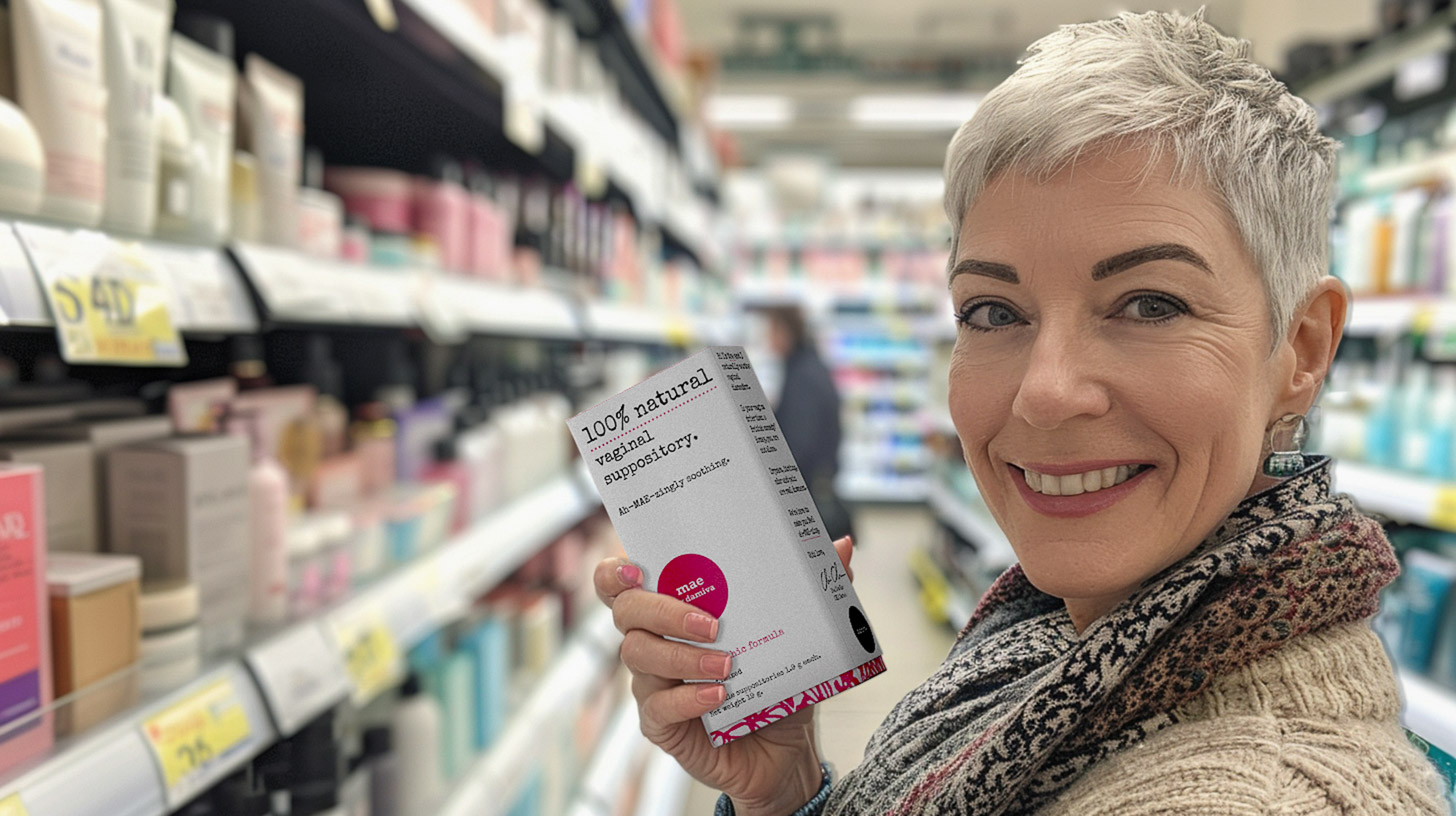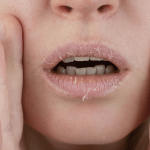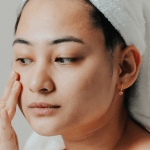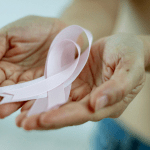
Introduction to Menopause and Skin Changes
Understanding Menopause
Menopause marks a significant transition in a woman’s life, typically occurring in the late 40s to early 50s. It signifies the end of menstrual cycles and fertility, characterized by the cessation of ovarian function and a decline in the production of the hormone estrogen. This natural biological process can lead to a variety of systemic and dermatological changes, impacting a woman’s overall well-being and skin health.
Common Skin Changes During Menopause
As estrogen levels drop during menopause, the skin undergoes noticeable alterations. These changes can include:
- Dryness: Reduced estrogen production leads to a decrease in natural skin oils and moisture, resulting in dry, itchy skin.
- Wrinkles and Laxity: Estrogen plays a crucial role in collagen and elastin production. Its decline can lead to the development of fine lines, wrinkles, and sagging skin.
- Thinning: The skin may become thinner and more fragile, making it more susceptible to bruising and tearing.
- Hot Flashes and Sweating: Vasomotor symptoms can cause flushing and increased perspiration, further irritating the skin.
The Importance of Skin Care in Menopause
Given the profound impact of menopause on skin health, adopting a tailored skin care regimen becomes essential. Proper skin care can help mitigate dryness, improve skin barrier function, and maintain a healthy, youthful appearance. Emphasizing hydration, protection, and gentle cleansing can aid in managing menopausal skin changes effectively. Additionally, lifestyle modifications, such as a balanced diet rich in antioxidants, regular exercise, and adequate sun protection, play a pivotal role in nurturing the skin during this transformative phase.
The Science of Dryness in Menopause
Hormonal Fluctuations and Skin Health
Menopause marks a significant shift in a woman’s life, and one of the most noticeable changes occurs in the skin. The decline in estrogen levels, particularly 17β-estradiol, from ovarian sites after menopause is associated with a dramatic reduction in skin health. Estrogen is a pivotal signaling molecule that influences many important biological functions, including the maintenance of skin wellness. Its deficiency leads to a loss of collagen, elastin, fibroblast function, vascularity, and an increase in matrix metalloproteinase(s) enzymatic activities. These changes result in cellular and extracellular degradation, manifesting as dryness, wrinkles, atrophy, impaired wound healing, decreased antioxidant capacity, and a general decline in the skin’s defense against oxidative stress.
Dehydration and the Menopausal Body
Dehydration is a common issue during menopause, exacerbating skin dryness. The hormonal changes that accompany menopause can disrupt the body’s ability to retain moisture, leading to a dehydrated state. This lack of hydration affects the skin’s ability to maintain its turgor and elasticity, contributing to the dry and often itchy sensation many menopausal women experience. Additionally, the skin’s natural hydrating components, such as glycosaminoglycan and hyaluronic acid, are reduced, further diminishing the skin’s capacity to hold onto water.
Nutritional Deficiencies and Skin Dryness
Nutrition plays a crucial role in skin health, and deficiencies in certain nutrients can exacerbate skin dryness during menopause. Essential fatty acids, vitamins, and minerals are vital for maintaining the skin’s barrier function and hydration levels. Menopausal women may experience changes in their digestive system that can affect nutrient absorption, leading to deficiencies that impact skin health. A balanced diet rich in antioxidants, healthy fats, and adequate protein is essential for supporting the skin’s structure and function during this time.
It is important to note that while topical estrogen may reverse some of these changes, the effects of systemic hormone treatments are not well established, necessitating more concentrated local administration of hormones or the use of newer cosmeceutical agents such as selective estrogen receptor modulators (SERMs), including phytoestrogens that have become major active ingredients for skin care products, especially when addressing estrogen-deficient skin.
By the way, something for you, a little gift!!!
I am just in the middle of publishing my book. It’s about How women can balance their hormones. One part is about food and diet, of course.
Follow this link and enter your email.
I will send you this part of the book for free once the book is published. It has many concrete, practical tips and recipes and will help you feel better during menopause or times of Big hormonal fluctuations.
Annette, Damiva Lead for Health & Wellness

Natural Solutions for Managing Dry Skin
Hydration and Diet
One of the foundational steps in combating dry skin during menopause is ensuring proper hydration. Water is essential for maintaining skin health, as it supports skin elasticity and helps to flush out toxins. Aim for at least eight glasses of water a day, and consider incorporating hydrating foods such as cucumbers, watermelon, and oranges into your diet.
Nutrition also plays a crucial role in skin health. Foods rich in omega-3 fatty acids, such as salmon, flaxseeds, and walnuts, can help to nourish the skin from the inside out. Additionally, foods high in antioxidants, like berries, leafy greens, and dark chocolate, can protect the skin from oxidative stress. Vitamins A, C, and E are particularly beneficial for skin health, so include plenty of fruits and vegetables in your meals to combat dryness.
Herbal Remedies and Supplements
Herbal remedies can offer a natural way to address skin dryness. Black cohosh, for example, is known for its potential to alleviate menopause symptoms, including dry skin. It’s important to choose supplements that have been vetted for safety and efficacy, as quality can vary widely.
Phytoestrogens, found in plants like soy and flaxseeds, may mimic the effects of estrogen in the body and can be beneficial for menopausal skin changes. However, consult with a healthcare provider before starting any new supplement, especially if you have a medical condition or are taking other medications.
Gentle Skin Care Practices
Adopting gentle skin care practices is vital for managing dry skin. Start by avoiding hot showers and baths, as they can strip the skin of its natural oils. Instead, use lukewarm water and limit your bathing time. After washing, gently pat your skin dry and apply a moisturizer while your skin is still damp to lock in moisture. Look for products that are fragrance-free and designed for sensitive skin to minimize irritation.
All-Natural moisturizers like Eve Everywhere by Damiva or Cleo by Damiva can be soothing for dry skin as they contain emollient plant butters and hyaluoronic acid which helps retain moisture.
Exfoliation is also important, but it should be done gently to avoid damaging the skin. Homemade scrubs with natural ingredients like sugar and coconut oil can remove dead skin cells without being too harsh. Remember to follow up with a 100% all-natural, chemical-free moisturizer to soothe and protect the skin.
Lastly, be mindful of the products you use on your skin. Choose products that are mild and free of chemicals. Remember your skin is your largest organ and you will absorb skincare compounds through your skin. If these are synthetic chemicals – many of them are hormone disruptors and will contribute to making dryness worse.
If you experience persistent dryness or irritation, consult with a dermatologist or aesthetician for personalized advice and treatment options.
Beyond the Face: Addressing Dryness Everywhere
Vaginal Dryness and Intimate Care
Menopause can significantly affect intimate areas, leading to discomforts such as vaginal dryness. This condition, known as atrophic vaginitis, results from decreased estrogen levels, which cause thinning and inflammation of the vaginal walls. Symptoms can include dryness, itching, burning, and painful intercourse. Addressing vaginal dryness is crucial for maintaining comfort and sexual health. Regular use of water-free, chemical-free and beeswax-free vaginal moisturizers and lubricants can alleviate dryness. Additionally, topical estrogen therapies, prescribed by a healthcare provider, can help restore vaginal tissue health. It’s important to choose products specifically designed for intimate care to avoid irritation and maintain the natural pH balance. It is important that the products you choose do not contain water, chemicals, or beeswax.
Dryness in Hands, Feet, and Elbows
Menopause can also exacerbate dryness in areas like the hands, feet, and elbows. These areas are prone to roughness due to frequent use and exposure. To combat this, deep moisturizing treatments are recommended. Look for creams and ointments containing hyaluronic acid, glycerin, or ceramides, which help to lock in moisture. For the feet, using exfoliating scrubs followed by rich foot creams can reduce dryness and calluses. For elbows, apply a thick layer of moisturizer and cover with a cotton cloth overnight to allow deep penetration. Consistent care is key to managing dryness in these areas.
Scalp Care and Hair Health
The scalp can become dry and itchy during menopause, leading to discomfort and affecting hair health. To address this, use gentle, hydrating shampoos and conditioners that are free from harsh sulfates. Scalp treatments with ingredients like tea tree oil or salicylic acid can alleviate itchiness and flakiness. Additionally, essential oils such as rosemary and peppermint can stimulate the scalp and promote hair health. It’s also beneficial to reduce the frequency of hair washing to prevent stripping the scalp of its natural oils. Regular scalp massages increase blood circulation, supporting healthy hair growth.
Overall, menopause requires a holistic approach to body care. By addressing dryness not just on the face but everywhere, women can maintain comfort and confidence during this natural transition.
Lifestyle Adjustments for Skin Health
Exercise and Skin Elasticity
Regular physical activity is not only beneficial for overall health but also plays a crucial role in maintaining skin elasticity. Exercise increases blood flow, which helps nourish skin cells and keep them vital. Blood carries oxygen and nutrients to working cells throughout the body, including the skin. In addition to providing oxygen, blood flow also helps carry away waste products, including free radicals, from working cells. Engaging in activities that promote circulation can therefore help maintain the skin’s resilience and appearance. Furthermore, exercise can help reduce stress, which has been linked to skin aging.
Stress Management Techniques
Stress can have a profound impact on skin health, exacerbating conditions like dryness and accelerating the aging process. Implementing stress management techniques such as mindfulness, meditation, deep-breathing exercises, or yoga can help mitigate the effects of stress on the skin. These practices not only soothe the mind but also promote a healthier complexion by reducing the levels of stress hormones in the body, which can negatively affect skin hydration and barrier function.
Sleep Quality and Skin Regeneration
Quality sleep is essential for skin health, as it is during sleep that the body repairs and regenerates skin cells. Lack of sleep can lead to increased signs of aging and slower skin recovery from environmental stressors such as sun exposure. Aim for 7-9 hours of uninterrupted sleep per night to allow the skin to undergo its natural repair processes. Establishing a regular sleep schedule, creating a restful environment, and avoiding stimulants before bedtime can enhance sleep quality, thereby supporting the skin’s ability to maintain moisture and elasticity.
In conclusion, lifestyle adjustments such as regular exercise, stress management, and quality sleep are pivotal for maintaining skin health during menopause. These practices help to counteract the effects of hormonal changes on the skin, ensuring that it remains hydrated, elastic, and vibrant.

Bette 100% All-Natural Relaxing Lavender Body Lotion.
Chemical-Free
Your relaxing night time body moisturizer to leave the day’s stress behind. Decompress and wish your body good night with the calming scent of lavender.
Emotional Well-being and Self-care
The Psychological Impact of Menopause
Menopause is not just a physical transition; it also heralds significant psychological changes. The cessation of menstruation can be accompanied by a sense of loss, impacting a woman’s identity and self-perception. Fluctuating hormones contribute to mood swings, anxiety, and depression, making emotional well-being a critical focus during this time. It is essential to recognize these psychological shifts and address them with the same care as physical symptoms. Support groups, therapy, and mindfulness practices can be invaluable tools in navigating the emotional landscape of menopause.
Building a Supportive Community
Menopause can feel isolating, but building a supportive community can provide a buffer against this solitude. Engaging with friends, family, and peers who understand and empathize with the menopausal experience can offer comfort and advice. Online forums and local support groups are also excellent resources for sharing stories and strategies. A supportive community fosters a sense of belonging and provides a platform for collective wisdom and shared experiences.
Self-esteem and Body Image
Menopause can challenge a woman’s self-esteem and body image as she grapples with visible signs of aging and internal changes. It’s crucial to cultivate a positive body image by focusing on self-acceptance and appreciating the body’s capabilities rather than its perceived flaws. Engaging in activities that promote a positive body image, such as yoga, exercise, or creative pursuits, can enhance self-esteem. Emphasizing inner qualities and achievements over appearance can also shift the narrative towards a more holistic view of self-worth.

⭐️⭐️⭐️⭐️⭐️ “My biggest symptoms are GSM, and because of Mae, they are mostly addressed. I have lived Mae for almost 7 years, and I endorse it all the time.” Margaret C., Damiva Mae Customer
⭐️⭐️⭐️⭐️⭐️ “I’m in my 60’s and post menopause. My doctor recommended I try Damiva MAE, after taking me off hormones (due to developing cysts). I LOVE it. All natural, no hormones, Great vaginal moisturizer. Easy to insert and pleasant smell. So Thankful for MAE.” Paula, Damiva Mae Customer
Conclusion: Embracing Change with Confidence
Summary of Key Points
Menopause is a multifaceted journey that affects every woman differently. Addressing dryness, both physical and emotional, requires a comprehensive approach that includes understanding the hormonal underpinnings, adopting natural solutions, making lifestyle adjustments, and fostering emotional well-being. By prioritizing self-care and seeking support, women can navigate this transition with confidence and grace.
Continued Learning and Adaptation
As research on menopause evolves, so too should our strategies for managing its symptoms. Staying informed about the latest findings and treatments allows for ongoing adaptation and personalized care. Continuous learning empowers women to make informed decisions about their health and well-being.
Encouragement for the Journey Ahead
The path through menopause is unique for each woman, but it need not be traveled alone. Encouragement from healthcare providers, peers, and loved ones can illuminate the way forward. Embrace this time of change as an opportunity for growth and renewal, and remember that with the right care and support, the journey can lead to a fulfilling post-menopausal life.

Popular Read
Conclusion: Embracing Change with Confidence
Summary of Key Points
Menopause is a natural and significant phase in a woman’s life, characterized by the end of menstrual cycles and a decline in hormone production. It typically unfolds in three stages: perimenopause, menopause, and postmenopause, each with its own set of symptoms and challenges. While the duration of menopause varies among individuals, it generally spans several years, with symptoms eventually subsiding as women transition into postmenopause. Understanding the stages and duration of menopause is crucial for women to navigate this transition with knowledge and confidence.
Continued Learning and Adaptation
As women journey through menopause, it is essential to prioritize learning and adaptation. Staying informed about the changes occurring in the body and the various management strategies available can empower women to make informed decisions about their health. Embracing lifestyle adjustments, such as a balanced diet, regular exercise, and stress management, can alleviate symptoms and enhance overall well-being. Additionally, seeking support from healthcare professionals and connecting with others who are experiencing similar changes can provide valuable insights and encouragement.
Encouragement for the Journey Ahead
Menopause, while challenging, also presents an opportunity for personal growth and self-discovery. It is a time to focus on self-care, set new goals, and explore new interests. Women should be encouraged to view menopause not as an ending but as the beginning of a new chapter filled with possibilities. Embracing this transformative period with a positive mindset and proactive approach can lead to a fulfilling and vibrant life post-menopause. Remember, every woman’s experience is unique, and with the right support and self-care, the journey through menopause can be navigated with grace and empowerment.










